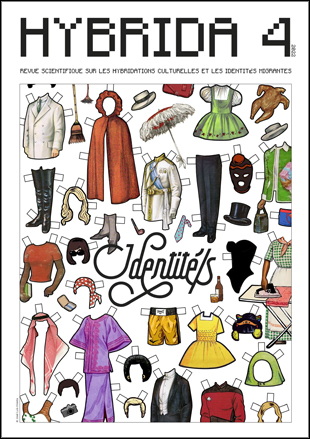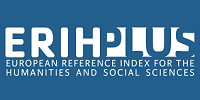The hybrid identity of Fatima Daas: from foreignness to agency
DOI:
https://doi.org/10.7203/HYBRIDA.4.24025Keywords:
Fatima Daas, self-fiction, religion, homosexuality, agency Abstract
Abstract
The narrative of La Petite dernière by Fatima Daas is uttered by a narrator grappling with her dual Franco-Algerian culture and the discovery of her homosexuality. In this article, my objective is to analyze how in-betweenness—spatial, linguistic and communal—shapes the narrator’s identity. By weaving together the notions of foreignness and hybridity, I will focus on the narrator’s personal geography, her daily travels as well as the journey to her country of origin, and on the inner conflict derived from a confrontation between the Muslim religion and the homosexuality. My hypothesis is that the refusal to single out one of her identities apparently irreconcilable can be read as a sign of agency, even an actual ethical posture: in Fatima Daas’ writing, what is outlined is a relational conception of autonomy.
 Downloads
Downloads
 References
References
Butler, J. (2005). Giving an Account of Oneself. Fordham University Press.
Christman, J. (2009). Autonomie individuelle et moi social. In M. Jouan et S. Laugier (Éds.), & C. Guillet et M. Jouan (Trad.), Comment penser l’autonomie ? Entre compétences et dépendances (pp. 169‑201). Presses Universitaires de France. https://www.cairn.info/comment-penser-l-autonomie—9782130565529-page-169.htm
Daas, F. (2020). La Petite dernière. Les éditions Noir sur Blanc.
Garrau, M. (2021). Agentivité ou autonomie ? Pour une théorie critique de la vulnérabilité. Genre, sexualité & société [en ligne], (25). https://doi.org/10.4000/gss.6794
Gauvin, L. (2009). Introduction. D’une langue l’autre : la surconscience linguistique de l’écrivain francophone. In L. Gauvin (Éd.), L’Écrivain francophone à la croisée des langues: Entretiens (pp. 5–15). Karthala.
Habermas, J. (1987). Théorie de l’agir communicationnel (J.-M. Ferry, Trad.; Vol. 1‑2). Fayard.
Jaeggi, R. (2009). « Vivre sa propre vie comme une vie étrangère » : l’auto-aliénation comme obstacle à l’autonomie. In M. Jouan et S. Laugier (Éds.), & L. Perreau (Trad.), Comment penser l’autonomie ? Entre compétences et dépendances (pp. 89–107). Presses Universitaires de France. https://www.cairn.info/comment-penser-l-autonomie—9782130565529-page-89.htm
Laplanche, J. (1992). La Révolution copernicienne inachevée . Travaux 1965-1992. Aubier.
Laugier, S. (2010). L’éthique du care en trois subversions. Multitudes, 42 (3), 112–125. https://doi.org/10.3917/mult.042.0112
Mahrane, S. (10 septembre 2020). « Le livre de Fatima Daas vaut mieux qu’une polémique ». Le Point. [en ligne] https://www.lepoint.fr/debats/le-livre-de-fatima-daas-vaut-mieux-qu-une-polemique-10-09-2020-2391301_2.php
Moura, J.-M. (1999). Littératures francophones et théorie postcoloniale. Presses universitaires de France.
Snauwaert M. & Hétu D. (avril 2018). Poétiques et imaginaires du care. Temps zéro : Revue d’étude des écritures contemporaines [en ligne], 12. http://tempszero.contemporain.info/document1588
Published
How to Cite
-
Abstract1147
-
HTML (Français )255
-
PDF (Français )857
Issue
Section
License
All the documents in the OJS platform are open access and property of their respective authors.
Authors publishing in the journal agree to the following terms:
- Authors keep the rights and guarantee HYBRIDA the right to be the first publication of the document, licensed under a Creative Commons license Attribution-NonCommercial-ShareAlike 4.0 International (CC BY-NC-SA 4.0) that allows others to share the work with an acknowledgement of authorship and publication in the journal.
- Authors are allowed and encouraged to spread their work (once published) through electronic means using personal or institutional websites (institutional open archives, personal websites or professional and academic networks profiles) once the text has been published.

















